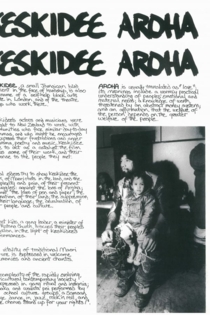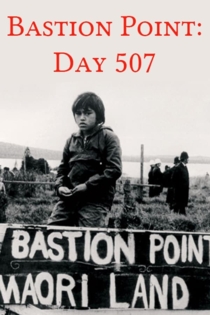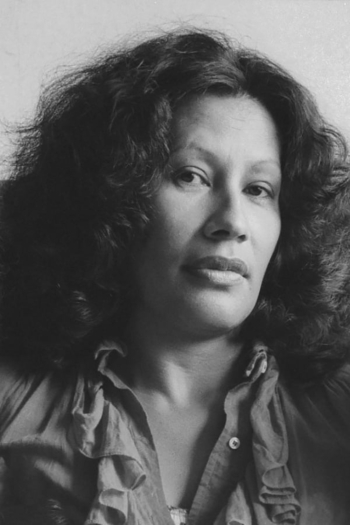
Merata Mita
1942 - 2010Merata: How Mum Decolonised the Screen
Hepi Mita
Merata Mita, Hepi Mita
A documentary portrait of the pioneering indigenous filmmaker and activist Merata Mita and an intimate tribute from a son about his mother that delves into the life of the first woman from an Indigenous Nation to solely direct a film anywhere in the world. Known as the grandmother of Indigenous cinema, Merata’s independent political documentaries of the 1970s and 80s highlighted injustices for Māori people and often divided the country. Mita was fearless in her life, her activism and her art. Chronicling the director’s journey to decolonize the film and television screens of New Zealand and the world, the film documents her work, her early struggles with her family and her drive for social justice that often proved personally dangerous.
Merata: How Mum Decolonised the Screen
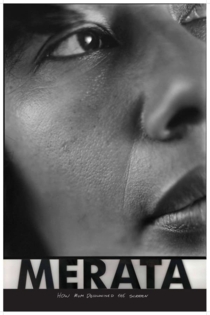
Hotere
Merata Mita
Cilla McQueen
Ralph Hotere (Te Aupōuri) is regarded as one of New Zealand's greatest artists. This documentary by Merata Mita provides a perspective on his world, largely by way of framing his extensive body of work. Hotere remains famously tight-lipped throughout, but there are interviews with artists, friends and commentators, alongside scenes of Hotere working and of his contemporary home context. Mita's impressionistic film is set to a Hirini Melbourne-directed score of jazz, māori and pop songs, and poetry reading by Hotere's first wife Cilla McQueen.
Hotere
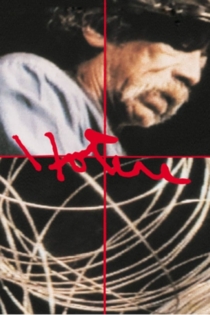
Patu!
Merata Mita
Marx Jones, John Minto
In 1981, the New Zealand government invited the South African rugby team to tour New Zealand. This effectively split the country in half. Patu! is the story of the protest movement, HART (halt all racist tours). This documentary shows footage of protester meetings, rugby games and various beatings meted out to protesters from police.
Patu!
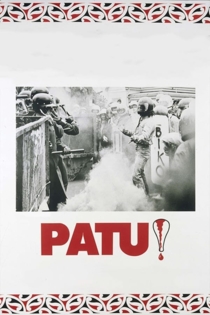
Saving Grace - Te Whakarauora Tangata
Merata Mita
Клифф Кертис, Hone Kaa
Saving Grace - Te Whakarauora Tangata is the final work of director Merata Mita, who passed away suddenly before the film could be completed. The film addresses some of the deepest and most distressing issues Māori communities face, and shows how extraordinary creative solutions are being provided by Māori communities themselves. Mita asks Maori men to front up to some grim realities by talking openly and honestly about the violence and abuse that has plagued their communities for many years. The film is a personal response to this violence, with Mita making a case for a return to an older model of Maori manhood, when men were the ones who sweetly sang the children to sleep. “Merata intended the documentary to count in ways that mattered deeply to her and to change perceptions of abuse and violence by using themes of responsibility, redemption, revitalisation, forgiveness and, most of all, love.” - Carol Hirschfeld, Māori Television.
Saving Grace - Te Whakarauora Tangata

Utu
Geoff Murphy
Anzac Wallace, Bruno Lawrence
In New Zealand in the 1860s the native Maori people fought the British colonials to keep the land guaranteed to them by treaty. The warrior Te Wheke fights for the British until betrayal leads him to seek utu (revenge). The settler Williamson in turn seeks revenge after Te Wheke attacks his homestead. Meanwhile Wiremu, an officer for the British, seems to think that resistance is futile.
Utu
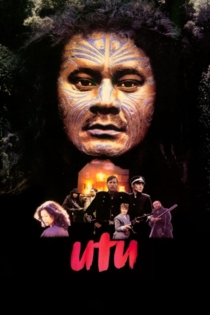
Mauri
Merata Mita
Anzac Wallace, Eva Rickard
Rewi Rapana returns to the small country town of Te Mata after his family has left the district. His arrival rekindles old tensions as well as renewing family ties. He is seeking an identity and a permanent place to call home yet desperately hiding a secret from his past. Oddly enough there is one person with whom he finds peace of mind. She is an old woman known as Kara. A special relationship develops between Rewi, Kara and Kara’s great granddaughter Awatea.
Mauri
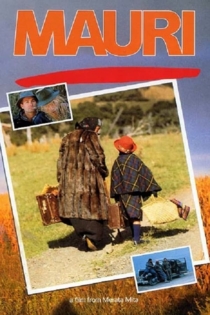
Mana Waka
Merata Mita
Tukuroirangi Morgan
Fifty years in the making, this extraordinary reconstruction of a never-completed 1940 documentary captures the construction of seven massive traditional war canoes by Maori tribespeople in anticipation of New Zealand's centenary celebrations.
Mana Waka

Keskidee Aroha
Merata Mita, Martyn Sanderson
Martyn Sanderson
Keskidee, a small Jamaican bird resilient in the face of hardship, is also the name of a self-help black arts centre in London, and the theatre group who work there. Keskidee's actors and musicians were brought to New Zealand to work with communities who face similar day-to-day dilemmas and who might be encouraged to express their frustrations and anger in drama, poetry and music. Keskidee were to act as a catalyst. the film shows some of their work and their response to the people they met. Tribal elders try to show keskidee the depth of Maori roots in the land, and the complexity and pain of their present struggles: against the loss of Aroha; against the laws of pen and paper; the alienation of their land; the suppression of their language; the devaluation of their people and culture.
Keskidee Aroha
